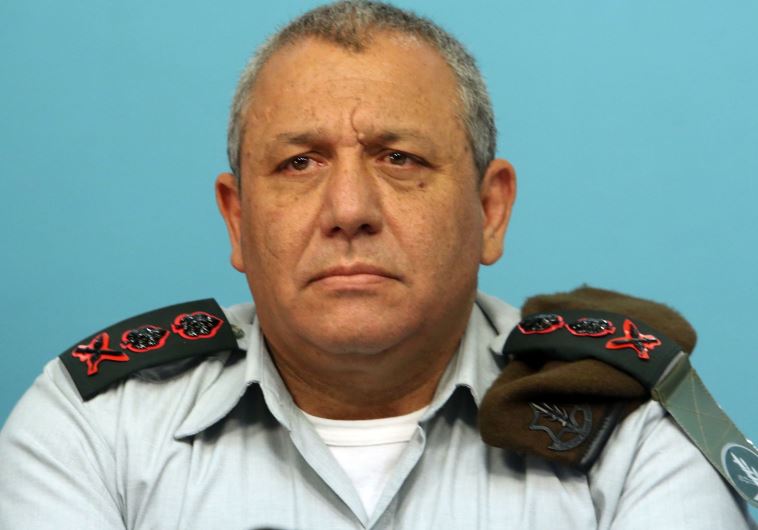Amid border tensions, IDF chief alludes to strikes on Hezbollah convoys
Eisenkot says the IDF's policy regarding the Syrian civil war was one of "non-intervention alongside preserving our interests."
 IDF chief of staff Lt.-Gen. Gadi Eisenkot (photo credit: MARC ISRAEL SELLEM/THE JERUSALEM POST)
IDF chief of staff Lt.-Gen. Gadi Eisenkot (photo credit: MARC ISRAEL SELLEM/THE JERUSALEM POST)